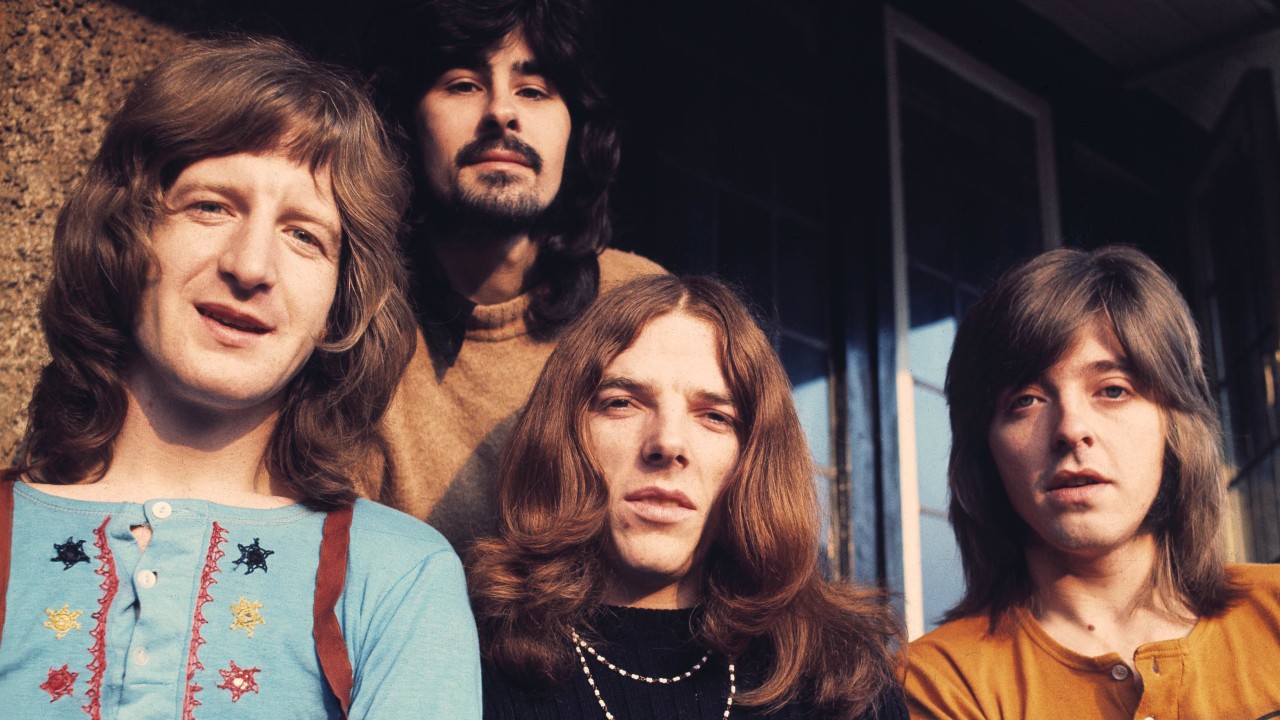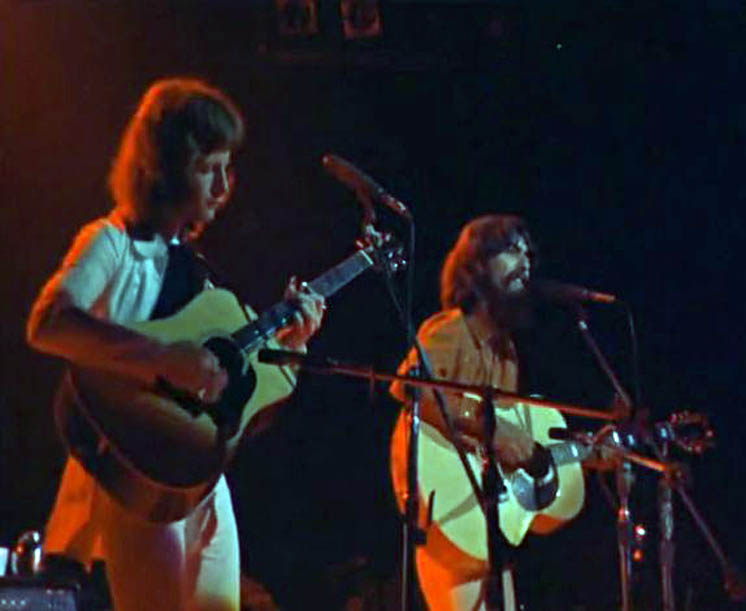Badfinger’s frenzied and tragic musical history includes, hit records, management rip-offs, poverty, suicide and the Beatles.
Especially the Beatles.
“It was a great compliment being compared to the Beatles, but in the early days it was a little bit of a curse,” Joey Molland of Badfinger said in a telephone interview. “We never pretended to be the new Beatles.”
Joey Molland’s Badfinger plays Savanah Center and Jan. 26 at 5 and 8 p.m.

Molland, like the Beatles, grew up in the Liverpool rock scene. He played the famed Cavern Club with local groups. Badfinger was originally known as the Iveys when signed by Apple Records.
Molland joined Badfinger in 1969, replacing an original member, and Apple Records was owned by The Beatles.
A year later, the Beatles would split and the world was looking for some new mop tops.
Along came Badfinger – Molland, Peter Ham, Tom Evans, Mike Gibbons — with a song written and produced by Paul McCartney. He wrote “Come and Get It,” for a movie called “The Magic Christian” and gave it to Badfinger.
McCartney showed up in the recording studio and demanded that Badfinger cover his song “note for note.”
And they did.
Next thing you know, “Come And Get It” was a monster worldwide hit. Here is a video:
https://www.youtube.com/watch?v=9tOnbeNAxdU
That was just the start of Badfinger’s explosive rise.
“No Matter What,” was another Top Ten hit. Other smash singles included “Baby Blue,” which became a hit all over again in 2013 after it was featured in the TV series, “Breaking Bad.”
https://www.youtube.com/watch?v=k9Jo7raPfJo
“Day After Day” was another Badfinger hit produced by George Harrison who also played slide guitar on the song.
Badfinger, whose album “Straight Up” was a worldwide best seller, also first recorded “Without You.” It became a big hit for Harry Nilsson and, decades later, Mariah Carey.

Badfinger worked with George Harrison and John Lennon on their solo albums. Molland played guitar on Harrison’s first solo LP “All Things Must Pass.” He appeared with Harrison on the “Concert for Bangladesh.”

Molland also played on John Lennon’s “Imagine” album, including the song, “Jealous Guy.”
“George was a wonderful guy to work with,” Molland said. “He was a regular bloke. He brought his guitar and just sat there and played.”
Lennon, in the studio, “was a bit quieter, and a nice guy,” Molland said. “I remember him sitting on a stool, smoking a cigarette, and drinking from a can of Coke. Yoko would come by and lean against the window of the (studio) control room. She was very quiet. I never got to talk to her but she was nice to us.”
Badfinger was hot in the early ‘70s and touring the world.
“We had the time of our lives,” Molland said. “I’m playing in a band and working with the Beatles. What else could I want.”
Money?
The concerts and hit records were adding up to millions of dollars. “Unfortunately, we got mixed up with crooks,” Molland said. “We didn’t understand the business side of rock and roll.”
He blamed the band’s management for the misuse of funds.
Molland praised Apple Records, which he said kept the finances honest. Badfinger left Apple and by 1975 the hits stopped, music was changing and the band discovered it had no money.
“We were all flat broke,” Molland said.
Peter Ham – who composed most the Badfinger songs — was in a desperate situation. He just bought a new house and his wife was pregnant. In April, 1975, he hanged himself. He was 27. His daughter, Petera, was born a month after his death.
“I felt awful, it was a terrible thing to happen,” Molland said of Ham’s death. “He did seem depressed at times, but there was no sign on anything like that. Peter was a great talent and a lot of fun. I miss him.”
There was no band and Molland spent a couple of years working at odd jobs. Then, in 1977, he and Tom Evans joined a new version of Badfinger. There were a few records, but more arguments and lawsuits over money.
It was too much for Tom Evans. In 1983, he, like Ham, hanged himself.
“I couldn’t believe it,” Molland said.
Over the next few decades, Molland and other members of the band eventually received some of the money due them, he said.
“You always have to remember that music is a business and you have to watch yourself,” Molland said. “You have to learn about management, publishing and royalties.”
Despite the tragedy and financial wounds, Molland feels good playing Badfinger songs today.
“Those songs hold up,” he said. “We try to bring those songs to life. We’re not just up there playing by rote. Those songs mean a lot to me. That’s what Badfinger was all about.”

